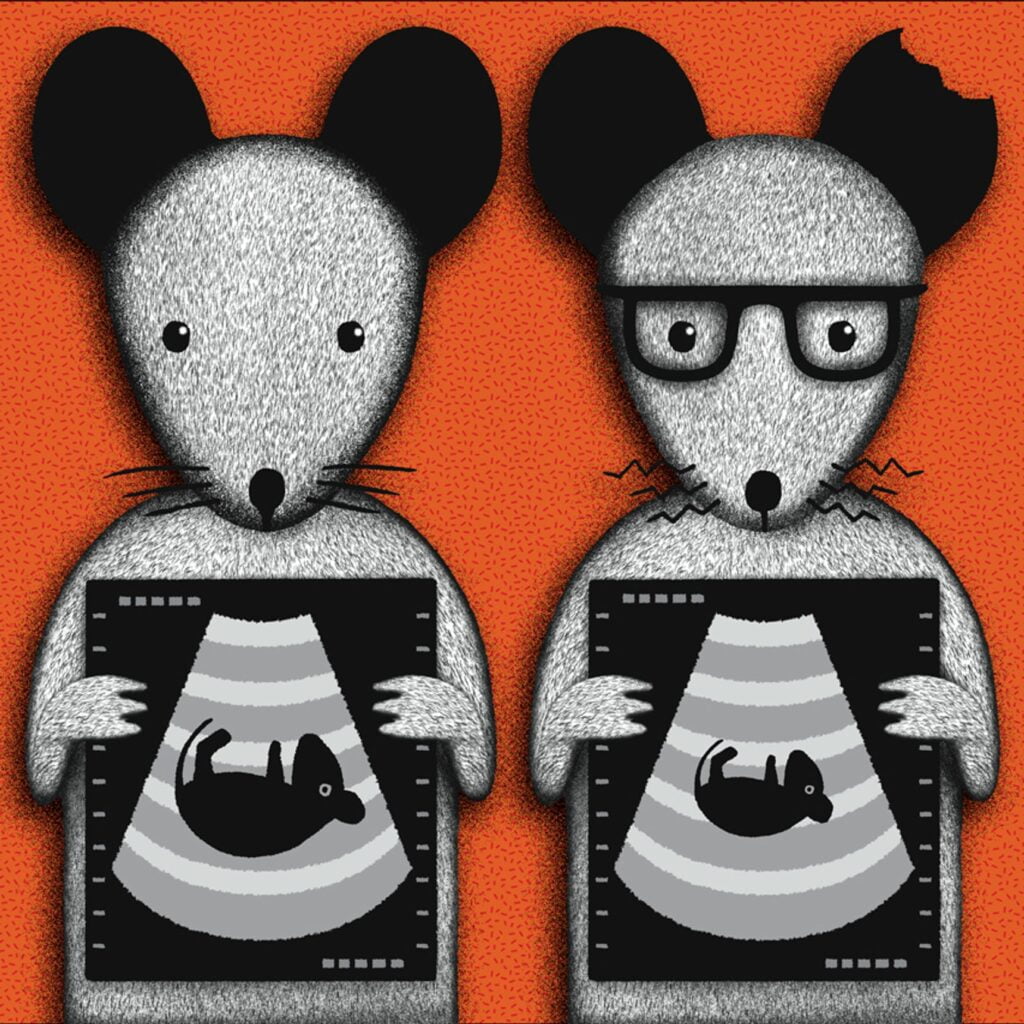The Risks of Having an Older Father
By Susan Pinker
https://www.wsj.com/articles/the-risks-of-having-an-older-father-11663351127
It is a source of envy for some women that older fathers can easily conceive healthy babies whereas older mothers, in many cases, cannot. When I had a child at the age of 35, my medical chart baldly stated that I was a “high-risk geriatric mother.”
Evidence is building, however, that older fathers also share some risk. Sperm cells generated later in a man’s life are more likely to feature genetic mutations that can lead to developmental disorders in children.
“There is evidence in humans that paternal aging is one of the risk factors for autism and other neurodevelopmental disorders,” said Noriko Osumi, a professor of developmental neuroscience at Tohoku University in Japan. “But there are a lot of confounding factors in humans. Is paternal aging itself really the cause, or is it something else?”
A new study led by Prof. Osumi involving newborn mice sheds light on the question. The study shows that mouse pups with older fathers are smaller and cry differently than those with younger dads. This can have negative consequences for the babies, she explained on a video call: “Some other [research] groups have noticed that if the baby’s type of cry is different, then the mother’s retrieval pattern changes.” A weird cry may mean that the mother isn’t primed to respond to the baby’s calls, in other words.
The research team, which includes first author Lingling Mai, a doctoral student in neuroscience at Tohoku University, included 120 mice. Half had fathers who were 3 months old, the equivalent of a human baby having a father in his 20s, while the other half had fathers between 1 and 2 years of age, comparable to having a human father in his 50s or 60s.
The mouse pups in the two groups were then separated from their mothers and littermates four times, at 3, 6, 9 and 12 days old. Each time the pups were placed in the “separation box,” their distress cries were recorded and analyzed. Under ordinary circumstances a human ear can’t hear these vocalizations, so the research team used special equipment and software to translate and graph the sound patterns, including downward or upward shifts in tone, harmonics, phrase repetitions and octave jumps.
A comparison between the two groups revealed that mice with young fathers were far more likely to have rich and complex cries than those with older fathers. The patterns of sound they emitted were also more likely to resemble each other. In comparison, the pups with older fathers cried less overall. Their vocalizations were more variable, yet had a more limited repertoire of sounds.
The study also found that pups with older fathers weighed less, which I expect may be related to the way they communicate. An animal with a sporadic, weak cry is likely to attract less attention from its mother, so it would nurse less and gain less weight.
Extending this finding to humans suggests that if infants don’t cry much in their first year, and use fewer words than other babies by their second birthday, parents should take notice. Sometimes parents say “my child is easy to raise because he doesn’t cry so much,” but that might not be such a good thing, suggested Prof. Osumi.


